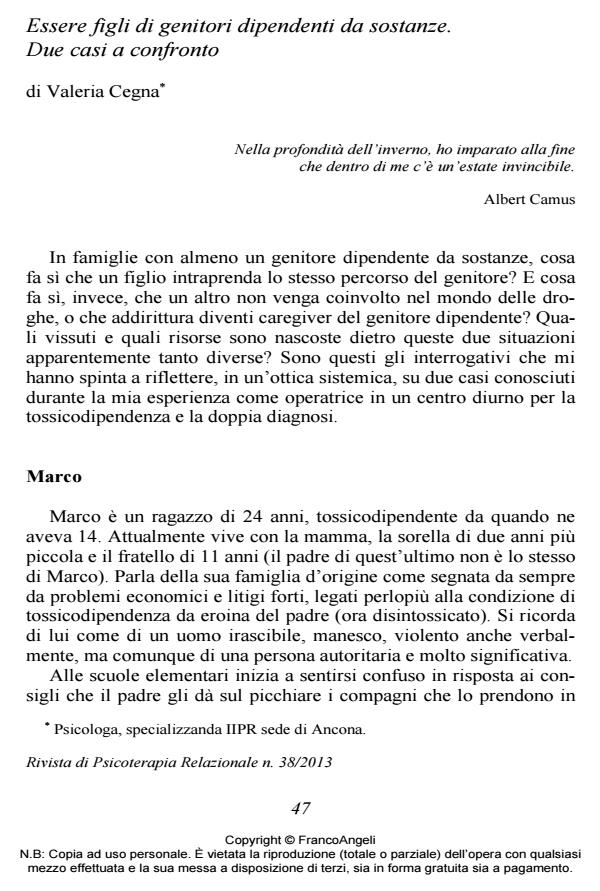To be children of parents with drug addiction. Two cases compared
Journal title RIVISTA DI PSICOTERAPIA RELAZIONALE
Author/s Valeria Cegna
Publishing Year 2014 Issue 2013/38
Language Italian Pages 12 P. 47-58 File size 329 KB
DOI 10.3280/PR2013-038004
DOI is like a bar code for intellectual property: to have more infomation
click here
Below, you can see the article first page
If you want to buy this article in PDF format, you can do it, following the instructions to buy download credits

FrancoAngeli is member of Publishers International Linking Association, Inc (PILA), a not-for-profit association which run the CrossRef service enabling links to and from online scholarly content.
The article derives from some questions that the author has posed during his experience working in a day center for drug addiction and dual diagnosis. These are questions which mainly arise from the observation of the variety of reactions and ways of life which are assumed by the children of drug users during the course of their lives. Many of them follow the same paths as their parents in developing an addiction themselves, others live and cope in a more functional way, albeit often becoming carers of the dependent parent. Through the illustration of the two cases associated with both of these two different possible paths, the author proposes a reflection from a systemic perspective, to conclude that, despite our culture, the idea still remains that healthy families are those where there are no problems, even the families with a drug dependent parent may be full of potential and resources.
Keywords: Drug addiction, children, development, resilience.
Valeria Cegna, Essere figli di genitori dipendenti da sostanze. Due casi a confronto in "RIVISTA DI PSICOTERAPIA RELAZIONALE " 38/2013, pp 47-58, DOI: 10.3280/PR2013-038004